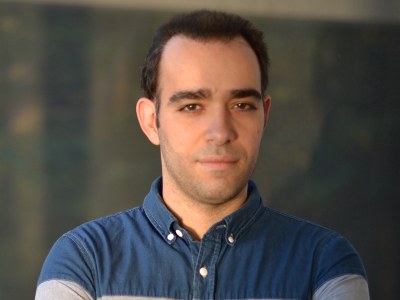Mapping the Humanities Q&A
 Andreas Elpidorou
Andreas Elpidorou
Department of Philosophy
2016-17 Commonwealth Center for the Humanities & Society Faculty Fellow
What is your role as a CCHS Faculty Fellow?
My role is to conduct research in my area of specialization, to present my work to the other Fellows and to the community, and to try to foster interdisciplinary communication.
Having said that, my responsibilities as a fellow go beyond those of a productive researcher. As a CCHS Faculty Fellow, I am an “ambassador” of A&S and as such, I strive to increase the visibility of the university and of my department by showcasing the value and relevance of the amazing work that A&S faculty are doing.
What is the role, and importance, of an "intellectual community" such as this in A&S? As scholars, and as part of the wider university community?
It is imperative for the university to cultivate and promote an intellectual community. In doing so, it shows actively that the university supports our work, that it understands our needs, and that it is committed to the dissemination of our research.
The benefits of a program like CCHS are however not reaped only by the Fellows. CCHS is incredibly valuable both to A&S and to the University. By hosting numerous public lectures, colloquia, and other events, CCHS brings renowned researchers from around the country to UofL, connects faculty with such researchers, and at the same time allows the public to be intellectually stimulated and engaged.
We are very fortunate to have a program like the Commonwealth Center for Humanities & Society.
There are a variety of interests and academic disciplines represented in the program. How will working among such a diverse group elevate your own research? What are the benefits of participating in a community of diverse scholars such as this?
Although it is a challenge to work in a context that is truly multidisciplinary, it is one that I very much welcome. By listening to and trying to understand the research of the other Fellows and of my colleagues from other departments, I get acquainted with new ideas and points of view that otherwise would not have been accessible to me.
Furthermore, by having to communicate my own ideas and research to colleagues from other disciplines, I am forced to explain my ideas in a clear and jargon-free manner. Such a presentation of my work is tremendously helpful to me. It makes me confront my basic assumptions and teaches me how to present my work to non-specialists.
What does "mapping the humanities" mean to you?
I understand maps very broadly: a map is any type of representation — this can be graphic, linguistic, conceptual, or otherwise — of relationships. In my work, I attempt to map various emotional states by articulating their place in our mental and social lives.
What inspired/s you to work in your particular academic field?
Initially, I was attracted to philosophy because of its unique capacity to offer a synoptic picture of the world. Now, I am attracted to philosophy because of its ability to render unfamiliar that which is most familiar.
